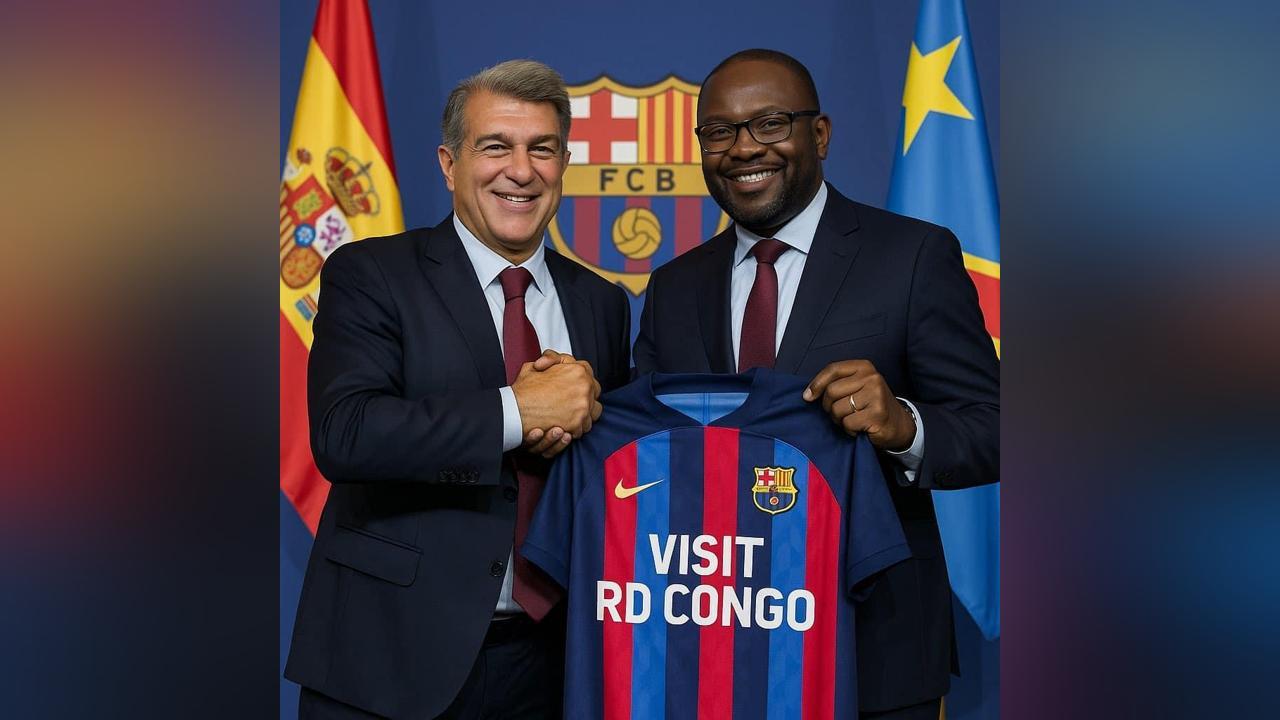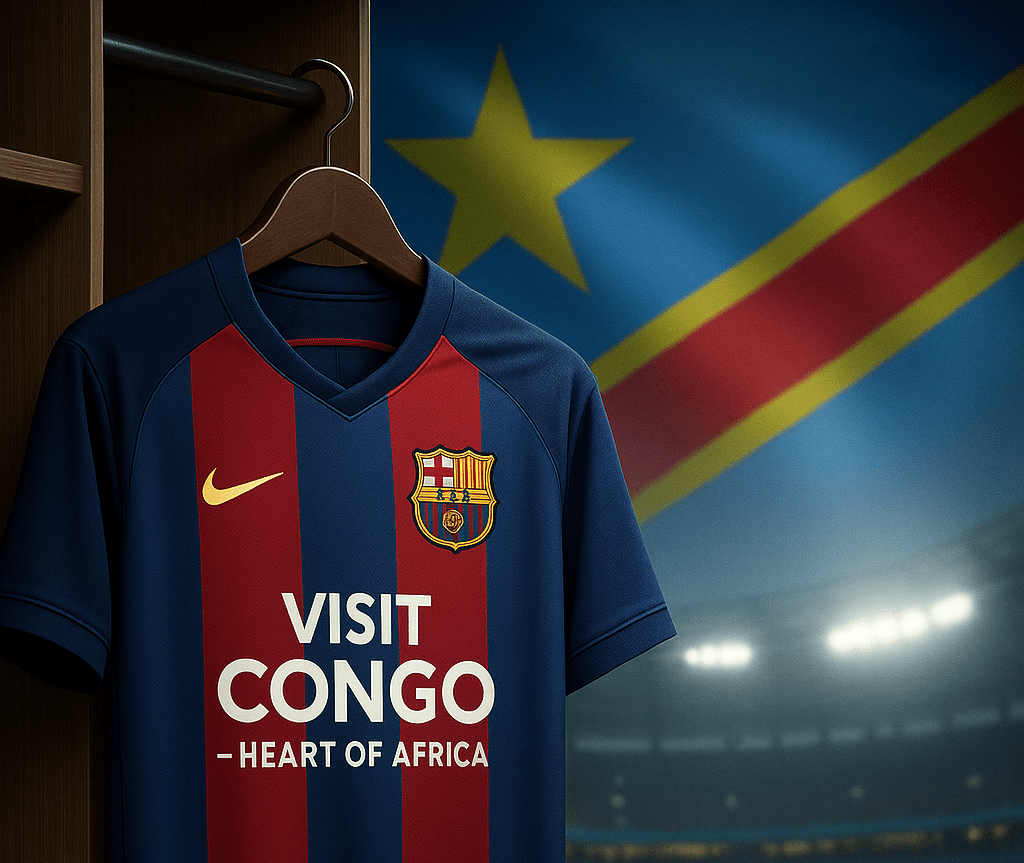FC Barcelona has finalized a striking new sponsorship agreement with the government of the Democratic Republic of the Congo (DR Congo), a deal that both highlights the club’s unique global outlook and commands attention in international sports circles. This four-year contract, reportedly valued at over €40 million (about $46.37 million), is unprecedented—not only for the pairing of an elite European football giant with a nation torn by conflict, but also for its stated aims to promote athletic empowerment, cultural exchange, and the rebranding of DR Congo’s global image.

The Details of the Deal
From the 2024/25 season through the 2028/29 campaign, all of Barcelona’s professional teams will bear the “RD Congo – Cœur d’Afrique” emblem—translated as “Heart of Africa”—on the back of their training shirts. More than a simple badge, the emblem is designed to serve as a beacon for sports tourism and investment in DR Congo, a nation striving to rehabilitate its reputation amidst ongoing internal unrest and humanitarian crises.
The sponsorship goes far beyond shirt branding; FC Barcelona and the DRC government announced the creation of the “Casa de la RDC” at Spotify Camp Nou—a dedicated venue to showcase Congolese culture and create new opportunities for engagement, learning, and visibility at one of the world’s most iconic football sites. Furthermore, Barcelona’s Barça Academies will introduce youth sports training and coaching clinics in the DRC, providing technical development in football as well as in basketball, handball, futsal, and roller hockey. Educational programs will extend through the Barça Innovation Hub, which is projected to assist in modernizing Congolese sport across multiple disciplines.
The Motivations: Sports, Image, and Diplomacy
For DR Congo, this collaboration is a major plank in its ambitious campaign to reposition itself on the world stage. The government is employing sports diplomacy to attract investment, boost tourism, and foster a narrative of national resilience and ambition. Officials describe the partnership as a statement of the nation’s youth, vibrancy, and openness to the world—an effort to replace headlines of conflict and instability with stories of hope and development.
From the perspective of FC Barcelona, the deal is both a sociopolitical statement and a shrewd business maneuver. Economic constraints, including the need to comply with LaLiga’s stringent financial fair play rules, have backed the club into a corner in recent years. The injection of €44–46 million over four years is expected to ease financial pressure and could even allow for additional transfer market activity. Strategic partnerships like this have become increasingly vital to the club’s business model as it seeks creative solutions within a challenging fiscal landscape.
Reactions and Controversy
The deal has not been without its detractors. Human rights organizations and sections of the fanbase have questioned the optics of partnering with a government in the midst of ongoing conflict, especially in eastern DR Congo, where violence and humanitarian crisis persist. Barcelona, for its part, has framed the partnership as a force for good—emphasizing its potential to promote peace, education, and opportunity through sport.
Nevertheless, the arrangement marks one of the highest-profile and most valuable sponsorships ever made by an African nation in the world of elite sport, following in the footsteps of Rwanda’s well-publicized partnerships with clubs like Arsenal and Paris Saint-Germain. For DR Congo, already the third African country to strike such a deal with a European club after AC Milan and AS Monaco, the Barcelona agreement marks a bold leap into the global sporting spotlight.
Final Thoughts
This landmark arrangement between Barcelona and war-torn DR Congo demonstrates the growing intersection of sports, diplomacy, and global branding. By centering sport and culture at the heart of mutual development, both Barcelona and DR Congo are betting on the power of football to transcend borders—and in DR Congo’s case, to change the fundamental narrative of a nation.

